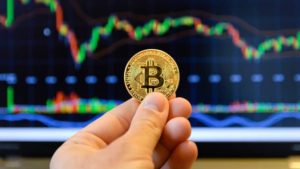California to Become America’s First “Trans Refuge State”?

California Senate Bill 107 passed the Assembly Appropriations Committee on Aug. 3 with an 11 to 4 vote along party lines. It’s objective: to “make California a ‘sanctuary state’ for children seeking gender-reassignment surgeries and drugs, including children that come to California from states where such procedures are illegal.”
Click here.
Another Crypto Hack

Cryptocurrencies have taken a beating this year. But crypto enthusiasts – at least the ones I know – have not given up hope. On the contrary, they are expecting another rally.
The most important thing to know about cryptocurrencies is that they are currencies. And currencies, as we know, facilitate commercial transactions by providing a trusted medium of exchange. Trust is the key word here. So long as people believe that a currency will be more or less as valuable in the future as it has been in the past, it retains its value.
The history of Bitcoin and other cryptos has been anything but steady and predictable. Chart the prices over the past 10 years and you have a rollercoaster graph. With each crash, some amount of faith disappears. That is not good.
But that’s not the only concern. The other worry is hacking and stealing. When cryptos first appeared on the scene, they were introduced as impossible to steal. But then they were stolen. And stolen again. Just last week, I read about a $190 million hack of the Nomad platform.
Click here.
And here.
No. COVID Vaccinations Are Not Entirely Risk Free.

Based on the reading I’ve done (which is more than I ever intended to spend time doing), I believe that the COVID vaccines are safe. Mostly. But not entirely. There have been reliable reports of seriously negative reactions that are disconcerting. And particularly when they are about children, whose immune systems are typically strong enough to be able to survive COVID at the same rate as they survive the common flu.
A nine-year-old died in California last week after receiving a Pfizer coronavirus vaccination. She had no listed preexisting conditions and was not hospitalized. According to VAERS (Vaccine Adverse Event Reporting System), this was the ninth child death reported since the FDA authorized both Moderna and Pfizer’s vaccines for children between the ages of six months and five years in June. Click here.




